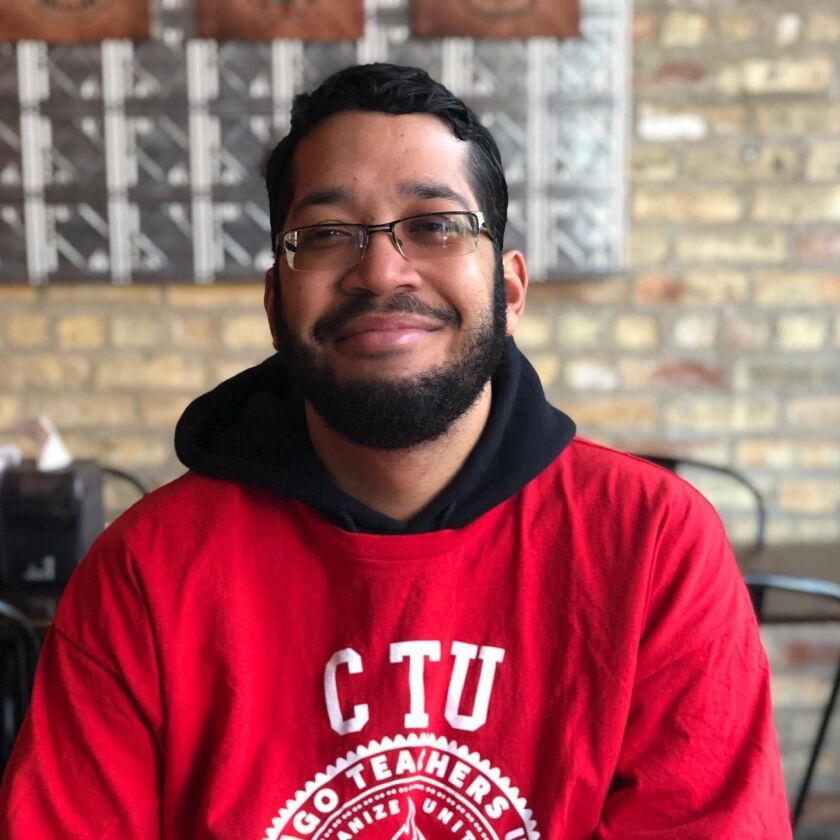It was a beautiful morning for a run in Columbus Park on Chicago’s West Side.
But before I — a middle-age white woman — set off with state Rep. La Shawn Ford — a middle-age black man — he turned to me and casually remarked it would be a safer run for him than usual, with me 6 feet beside him.
He didn’t have to explain. On that same day, last Thursday, two men were arrested and charged with the murder in Brunswick, Georgia, of Ahmaud Arbery. The 25-year-old African American went for a run near his home on a Sunday afternoon in February and never returned. A white man and his adult son saw Arbery running in their neighborhood, chased him down in their pickup truck and shot him dead in the street.
Arbery’s killing has been on the mind of my nephew Tyrone Palmer, a Chicago Public Schools social worker who recently posted this on Facebook:
“Safety doesn’t exist in a country that views your mere existence as a threat. Every Black person, myself included, has a myriad of things we do to make ourselves appear ‘safe’ to white people. We also all know that most of it is meaningless and won’t help us.”
Those “safe things,” Tyrone later told me, include crossing the street, especially at night, rather than risk unnerving a white woman he’s walking behind. And it means being constantly aware of his facial expressions, so as not to alarm any white people he may encounter.
“One of the things I learned when I was 10 or 11 was that people respond differently to me when I’m smiling,” Tyrone said. “It’s something I do all the time. When I’m walking and see someone who is white approaching me, I make sure I smile.”
That’s a problem now in the midst of the coronavirus pandemic: With a mask covering his mouth, no one can see his smile. “One of my defense mechanisms,” he said, “is gone.”
Tyrone, who has a master’s degree in social work and a bachelor’s degree in math, is always aware of where he is and where everyone else is. His height — he’s 6 feet 5 inches — doesn’t help.
“For me,” he said, “it’s trying to not appear threatening, which is hard sometimes.”
While my nephew is taking pains each day to present himself in the “safest” way possible, others — me included — don’t have to think about any of this. How often do we white people as the majority race in America benefit from privilege without realizing it?
I don’t get followed when I walk through a grocery store; my nephew does. I don’t get repeatedly pulled over by police for driving while black; my black friends and colleagues do.
When I am hired for a position, people don’t assume I got the job because of affirmative action rather than competence or maybe connections. When I fail at something, it won’t make it harder the next time for another white person who tries the same thing.
Every time Rep. Ford goes into a public restroom, rides a bus or eats at a restaurant he’s reminded of another time when those were very different experiences for his relatives.
“I may have not lived through the civil rights movement,” he said, “but my emotions and heart are impacted every day … even though I know I have a right to be there.”
What can we white people do? What should we do?
“What’s most important is that people treat each other with respect,” Ford said, adding that everyone — regardless of skin color — is guilty of prejudice to some degree. “It’s not just whites who have racism and prejudice in their hearts,” he said. “But it is overwhelmingly deadly for blacks.”
When friends, family or colleagues make a racist remark, Ford said, turn that into one of those teachable moments. Say something like, “That’s not right.”
“A big thing is listening,” Tyrone said. When a black or brown person shares a racist experience, don’t respond by saying, “Oh, it can’t be that bad.” Don’t discount their experience or question its impact.
Be aware of the privilege of not having to think about how others perceive you based on nothing but your skin color. “One of the privileges is that white people get to live in a bubble where race isn’t a factor, it isn’t significant,” Tyrone said.
Make the effort to learn how to be anti-racist, Tyrone added, and move away “from this binary view of racism. It’s a spectrum.”
Don’t expect black people to come up with the solutions to alleviate racism. And care about the problem every day, not just when something especially horrible happens — like a young black man being gunned down while out for a run.
“One thing I just wish: That people, white people especially, care about this all the time,” Tyrone said. “For a lot of black people, it stays with us. And a week later, it feels like the news has moved on, it just fades away.”
Suzanne McBride is chair of the Communication Department at Columbia College Chicago and an editor at the Sun-Times.
Send letters to letters@suntimes.com.





